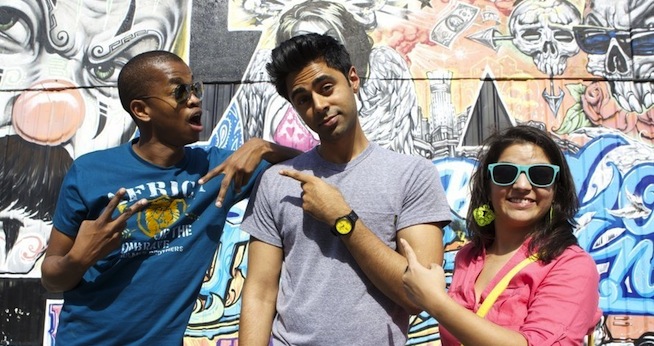
Audience engagement is one of the key aspects of social issue documentaries seeking meaningful change within communities – yet filmmakers still struggle with the best ways to move audiences from awareness to action. Center Creative Director and documentary producer/strategist Caty Borum Chattoo’s new report Entertainment, Storytelling & Social Change in Global Poverty: An Impact Evaluation of “Stand Up Planet” addresses these issues head-on.
Stand Up Planet as described by its production team is “a documentary TV show, transmedia series and digital campaign that showcases life in some of the toughest places on Earth – in parts of India and South Africa – through the lens and experiences of stand-up comics.” The show follows comic Hasan Minhaj (The Daily Show) to different parts of the world to meet local comics using laughs to raise critical health and environmental issues. Borum Chattoo was an executive producer and producer on the project, which was funded by the Bill & Melinda Gates Foundation.
Borum Chattoo’s report looks at how Stand Up Planet influences viewers as compared to a more “sober” explanatory documentary on similar issues. Specifically, it focuses on some of the biggest challenges of engagement in documentary film: How do we reach “beyond the choir” to touch not just existing supporters but also “persuadables” – the people who aren’t already on board? How do we get audiences to want to pick up and watch a film on a discouraging topic? And how do we get viewers past the desensitizing wall of “otherness” that separates them from the people and situations they see on the screen, particularly in topics as literally far away as poverty across the globe?
The findings of the report suggest that light-hearted entertainment can tackle even the most serious of issues, such as endemic poverty and public health crises – and that in some cases, it can do so more effectively than more traditional approaches. Borum Chattoo found that while traditional explanatory documentaries are good for learning, more entertaining approaches are good for caring – at least where this particular topic is concerned. And caring may be the key to engaging audiences enough to inspire social action on the core social issues.
Entertainment is also more likely to attract new viewers and to keep them engaged throughout the program, according to the report: “All audiences – the general audience, young people, and even those not yet reached by global poverty and health information – find Stand Up Planet to be accessible, something they would watch on their own, and motivating for action. In the choice between overt, didactic fact-offering content vs. content that may focus on empathetic portraits, entertainment (and even comedy), the unexpected learning of entertainment content may be the more strategic choice – if motivating attitudes and action is the goal.”
These and other insights in the report offer filmmakers new ways of approaching some of the most critical issues that continue to plague local and global communities. By changing how we approach these issues, perhaps we can break through walls of “otherness” to create real connections between those onscreen and off – and through connection, kindle action.
The research project, Entertainment, Storytelling & Social Change in Global Poverty: An Impact Evaluation of “Stand Up Planet” was funded by the Bill & Melinda Gates Foundation, with Borum Chattoo as principal investigator. You can read and download the full report here.
Join the conversation on the nature and power of impact media this February at Media That Matters 2015: Tools of the Trade, where Borum Chattoo will be the keynote speaker. Learn more here.
